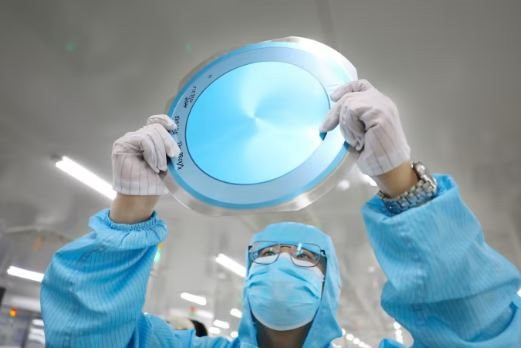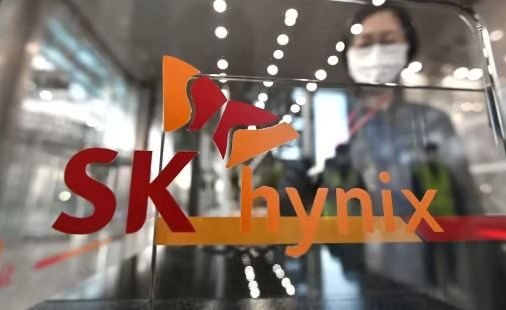The theft of technology secrets shook the chip industry: Samsung’s ‘Goddess’ stole data, built a ‘copy’ factory in China, if successful, it will cause serious damage
- Tram Ho
In 2006, a Korean engineer named Choi Jin-seok was named “semiconductor output master”. As head of chip production at SK Hynix, Choi is in charge of overseeing the certification of next-generation chips against Samsung, a rich and famous Korean rival.
“He’s a tech genius and a capable person, capable of running a large company,” said Choi’s colleague.
However, after being accused of stealing Samsung technology to build a chip factory in China, Choi’s career collapsed.
“The scope of the crime and damage is more severe than all previous individual technology leaks,” South Korean prosecutors said. “If the domestic factory is copied and products of similar quality are mass-produced in China, the Korean semiconductor industry will be damaged and difficult to recover.”
In response to the court’s charge, Choi denied any guilt.
“He is respected for his talent and expertise. When things came out, people looked at them differently,” said an executive who used to work under Choi at Hynix. “It is surprising and regrettable that he is involved in a case like this.”
For Koreans, the case raises questions about corporate culture as well as the risk of “brain drain” abroad. More broadly, it shows South Korea’s role in the US-China geopolitical war.
China’s efforts to acquire Korean technology have become more aggressive in recent years. In February, the US announced the creation of a “Disruptive Technology Strike Force” to “defend critical technology assets from being acquired or used by national adversaries”.

The career of a tech genius collapsed because of a wrong decision.
Back to Choi Jin-seok.
Thoroughly professionally trained, Choi started his career at Samsung Electronics in 1984. The man continued to serve as Executive Vice President of Process Technology Division until 2001, then moved to SK Hynix leads the memory chip division.
At that time, Hynix tried to compete with Samsung despite its financial difficulties. According to someone who used to work under Choi, this leader has improved the efficiency of the production process at no additional cost.
“Hynix was able to stay competitive without too much investment thanks to its expertise in process technology,” said one employee, adding that Choi helped the company fend off a takeover attempt from Micron in the beginning. 2000s. “He’s not someone who would cheat. He is a very industrious person and has almost no weekends off.”
Choi joined the board of Hynix in 2007 as Vice President and Chief Technology Officer. In 2010, he resigned.
“Choi was one of the brightest CEO candidates but was forced to give up because a colleague took office. In Korean corporate culture, you have to quit your job when a colleague or subordinate is promoted to boss,” said one former employee.
Since then, Choi has spent many years working in the solar cell industry. As a consultant in Taiwan and Singapore, he founded a chip consulting company called Jin Semiconductor in 2015. The relationships he built in China helped Choi make a big turning point in his career.
According to the FT, Choi knew many Chinese officials by participating in the construction of the Hynix factory in the eastern city of Wuxi. He is considered a “technology leader” for China’s memory chip industry thanks to his extensive experience at both Samsung and Hynix.
“He promised us that he would help China overcome the bottleneck in semiconductor development,” a Chinese official said.
In 2019, Choi’s Jin Semiconductor company went into operation with about 200 skilled Korean engineers. “They are exactly what China needs. They have experience, which in turn helps China speed up and optimize production,” the person said.
According to court documents, Choi asked South Korean employees to collect detailed data on Samsung chip factories, then used them to build a “copy factory” in Xi’an.
“They stole the basic technical data of the Hwaseong factory as well as the layout and blueprints of the first factory in Xi’an,” said the prosecutor in charge of the investigation. “Building a chip factory requires huge amounts of data. They cannot memorize all such information.”
Before the incident was revealed, Choi’s Jin Semiconductor also received $ 6.2 billion in investment from Foxconn. Foxconn, an important manufacturing partner of Apple, has long had ambitions to enter the chip business.
“Foxconn is aware of the speculation surrounding the legal case in Korea. The company did not wish to comment on anything. We will comply with laws and regulations,” said a Foxconn representative at the time.

Choi Jin-seok, known as the “semiconductor output master”, is a former SK employee
In 2020, Choi founded CHJS High Technologies, a joint venture with the Chengdu local government. At the time, China was accelerating its push into the memory chip sector to counter growing technological pressure from the United States.
CHJS executives repeatedly promised Chinese government officials that “CHJS will soon become the world’s fourth-largest Dram chip maker after Samsung, SK Hynix, and Micron.” Some experts who have worked with CHJS also commented that the company’s capacity is equivalent to the largest domestic chip manufacturer in China.
The company then intends to purchase equipment from US suppliers AMAT, Lam and KLA, giants ASML and Tokyo Electron to begin mass production in the second half of 2022. However, US restrictions for chip exports thwarted this plan.
“CHJS’s mass production plan is not progressing as expected, the output and productivity results are not good,” one person said.
CHJS’s financial situation began to deteriorate. According to South Korean prosecutors, Choi was only able to raise $350 million from Chinese investors, much less than his ambition.
“Local officials are disappointed by the results of mass production trials and do not want to continue investing,” one person said. “What worries some officials is that the core CHJS team was all brought in from Korea by Choi. Technology and chips led by Koreans will be very difficult to control.”
Sharing with the FT, three former CHJS employees said many workers had not been paid for a long time. Executives are often absent.
Choi was arrested in South Korea in May but firmly denies any wrongdoing. “Choi doesn’t know what’s going on,” his lawyer said. He knew that the Xi’an factory would be built in China but did not know that it was Samsung’s blueprint and blueprint. As someone who has been in the industry for more than 20 years, Choi would never order an employee to take advantage of a competitor’s trade secrets.”
“The question is how much data was leaked to China and how much of it was used to build other factories in China,” said Lee Dong-hwan, a former investigator.
According to Ben Forney, a researcher at Seoul National University, the real problem is not with Choi himself. In fact, a lot of Korean executives and engineers they hire are willing to transfer everything to China.
“Many Korean engineers see going to China as a legitimate move,” Forney said, noting that one of the reasons Korea has such an advanced semiconductor industry is the acquisition of knowledge. and expertise from the US and Japan.
Pahk Heui-jae, an engineering professor at Seoul National University and former director of the Korea Industrial Technology Security Association, said South Korea should see the incident as an incentive to pay more attention to its culture. businesses as well as protect the brains of talents.
By: FT
Source : Genk
